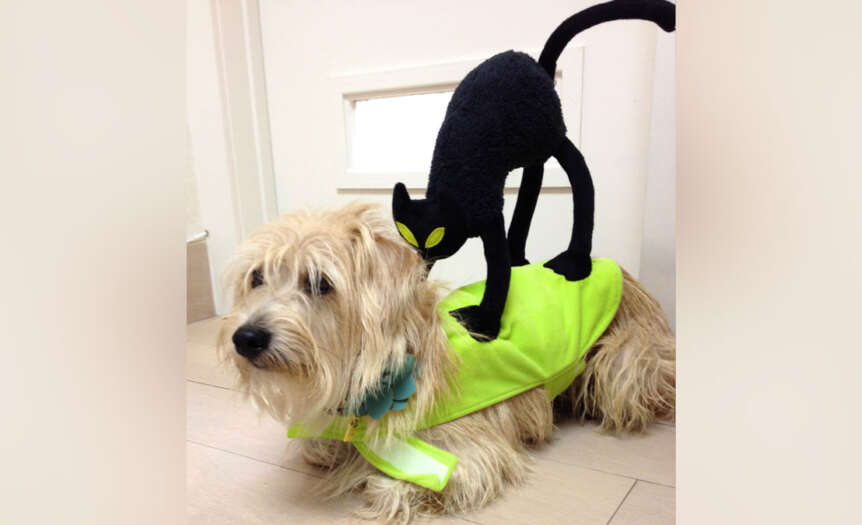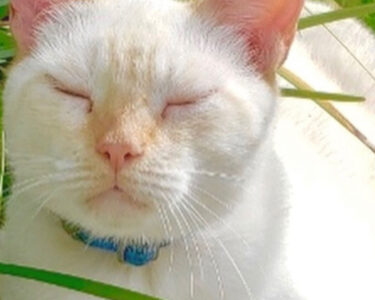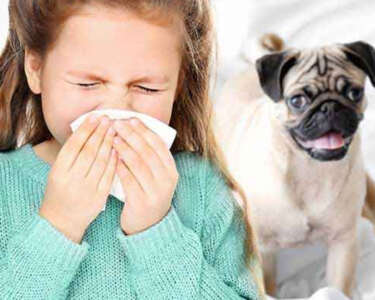(or How Not to Spend Halloween Night in an Emergency Clinic)
Halloween is approaching, and many are already planning for what is considered one of the most popular holidays of the year. Halloween, however, is also one of the holidays where the most lost pets and dog bites are reported. It is also one of the busier nights at animal emergency clinics. To avoid spending your Halloween night at a hospital with your beloved pets, here are five tips to follow:
Avoid dangerous pet costumes.
Only dress up your pet if he/she tolerates and enjoys it. Avoid any costume that limits their field of vision or that has loose strings, feathers or bells. Avoid flammable materials and outfits that are tight or uncomfortable. If your dog is a chewer or eats foreign objects (listen to this one, Labrador owners), then skip the costume. If you make the costume yourself, be sure that it is a safe design and allows for proper movement.
Choose decorations that are safe.
Avoid using real candles for decoration to prevent burned whiskers, corneas and other body parts. Candles are often placed on the ground inside interesting containers, such as pumpkins, that are too attractive and invite dogs and cats to smell and investigate, resulting in major burns.
Skip the fake spiderwebs if there are cats in the household. Cats are fond of playing with strings, and it is easy for them to swallow these plastic strings, leading to intestinal blockage and, likely, emergency surgery.
Be cautious opening doors repeatedly.
Frequent knocking at the door by kids looking for candy can be an invitation for fast dogs and cats to escape and get lost or, worse, get hit by a car.
Keep candy out of your pet’s reach.
Unintentional poisoning from eating candy that contains ingredients that are toxic to pets and gastrointestinal problems due to the ingestion of excess candy are perhaps the most common emergencies seen on Halloween night. If your pet is known for stealing snacks from tables and counters, avoid chocolates (especially the darker type), raisins and any candy with the sweetener xylitol. The theobromine in chocolate will lead to tachycardia, incoordination, vomiting, diarrhea and other serious symptoms that require treatment. The low-calorie sweetener xylitol can lead to acute liver failure. Ingestion of raisins can cause acute kidney failure in dogs. Let’s not forget that most dogs will also eat the wrappers and even the lollipop sticks. These foreign, nondigestible materials commonly cause blockage of the intestines and stomach, requiring emergency surgery.
Keep your anxious pet in a quiet room with the door closed.
Nervous pets are more prone to anxiety attacks from loud, unfamiliar noises; frequent door knocking; and scary costumes. Older dogs and cats with cardiac disease are especially sensitive to these kinds of stimuli. Keeping your nervous pet away from these dangers will not only protect them from acute medical conditions such as heart attacks, but will also protect people, especially children, from unexpected bites caused by fear.
When planning for a fun Halloween night, keep your pet’s safety in mind. A worry-free celebration is always more enjoyable, and your pet will appreciate a safe, cozy room with his/her favorite snack to munch on during this holiday.









 Deering Estate
Deering Estate
 Massage Envy South Miami
Massage Envy South Miami
 Calla Blow Dry
Calla Blow Dry
 My Derma Clinic
My Derma Clinic
 Sushi Maki
Sushi Maki
 Sports Grill
Sports Grill
 The Healthy Kitchen
The Healthy Kitchen
 Golden Rule Seafood
Golden Rule Seafood
 Malanga Cuban Café
Malanga Cuban Café

 Kathleen Ballard
Kathleen Ballard
 Panter, Panter & Sampedro
Panter, Panter & Sampedro
 Vintage Liquors
Vintage Liquors
 The Dog from Ipanema
The Dog from Ipanema
 Rubinstein Family Chiropractic
Rubinstein Family Chiropractic
 Your Pet’s Best
Your Pet’s Best
 Indigo Republic
Indigo Republic




 ATR Luxury Homes
ATR Luxury Homes


 2112 Design Studio
2112 Design Studio
 Hamilton Fox & Company
Hamilton Fox & Company
 Creative Design Services
Creative Design Services
 Best Pest Professionals
Best Pest Professionals
 HD Tree Services
HD Tree Services
 Trinity Air Conditioning Company
Trinity Air Conditioning Company
 Cisca Construction & Development
Cisca Construction & Development
 Mosquito Joe
Mosquito Joe
 Cutler Bay Solar Solutions
Cutler Bay Solar Solutions


 Miami Royal Ballet & Dance
Miami Royal Ballet & Dance
 Christopher Columbus
Christopher Columbus
 Pineview Preschools
Pineview Preschools
 Westminster
Westminster
 Carrollton
Carrollton
 Lil’ Jungle
Lil’ Jungle
 Frost Science Museum
Frost Science Museum
 Palmer Trinity School
Palmer Trinity School
 South Florida Music
South Florida Music
 Pinecrest Orthodontics
Pinecrest Orthodontics
 Dr. Bob Pediatric Dentist
Dr. Bob Pediatric Dentist
 d.pediatrics
d.pediatrics
 South Miami Women’s Health
South Miami Women’s Health

 The Spot Barbershop
The Spot Barbershop
 My Derma Clinic
My Derma Clinic




 Miami Dance Project
Miami Dance Project

 Rubinstein Family Chiropractic
Rubinstein Family Chiropractic
 Indigo Republic
Indigo Republic

 Safes Universe
Safes Universe
 Vintage Liquors
Vintage Liquors
 Evenings Delight
Evenings Delight





 Atchana’s Homegrown Thai
Atchana’s Homegrown Thai
 Baptist Health South Florida
Baptist Health South Florida

 Laser Eye Center of Miami
Laser Eye Center of Miami
 Visiting Angels
Visiting Angels
 OpusCare of South Florida
OpusCare of South Florida

 Your Pet’s Best
Your Pet’s Best





 HD Tree Services
HD Tree Services
 Hamilton Fox & Company
Hamilton Fox & Company


 Creative Design Services
Creative Design Services